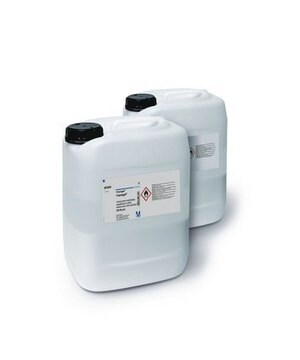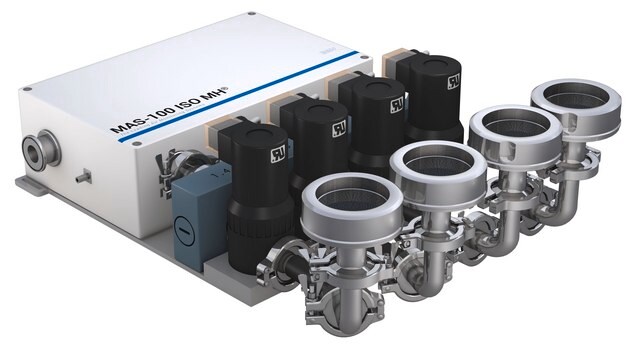1.25183
Fractogel® EMD SO3⁻ (S) Resin
RoboColumn Fractogel® SO3 (S), volume 0.2 mL, prepacked column
Sinónimos:
RoboCol Fractogel® SO3 (S), 0.2ml
About This Item
Productos recomendados
ligand
(Sulfoisobutyl)
Nivel de calidad
Materiales
polypropylene housing
Línea del producto
Fractogel®
Formulario
prepacked column
Parámetros
≤8 bar pressure
~80 cm/hr max. flow rate
Columna: D.I. × L
5 mm × 10 mm
volumen
0.2 mL
grupo activo de la matriz
Methacrylate
tamaño medio de partícula
20-40 μm
capacidad
~150 mL, resin binding capacity
aplicaciones
recombinant protein
vaccine development
temp. de almacenamiento
no temp limit
¿Está buscando productos similares? Visita Guía de comparación de productos
Descripción general
Características y beneficios
- Efficient separation between monomer, dimer, and high molecular weight aggregates
- High binding capacity
- High resolution
- Efficient polishing step
- Compatibility with 2.5 % (v/v) aqueous benzyl alcohol containing 150 mM NaCl storage solution
Due to the titration behavior, the ion exchange capacity can be used from pH 2 to pH 12. The separation of proteins is based on reversible electrostatic interactions between the surface′s positively charged regions and the support. Proteins are retained efficiently on Fractogel® EMD SO3- (S) when the pH of the buffer is about 1 unit below their isoelectric points (pl).
The strength of the binding depends on the following:
- the buffer system
- pH value of the buffer which determines the surface charge of the protein
- the concentration of the counter ions
- the charge density on the support (protein binding capacity)
Envase
Información legal
Certificados de análisis (COA)
Busque Certificados de análisis (COA) introduciendo el número de lote del producto. Los números de lote se encuentran en la etiqueta del producto después de las palabras «Lot» o «Batch»
¿Ya tiene este producto?
Encuentre la documentación para los productos que ha comprado recientemente en la Biblioteca de documentos.
Nuestro equipo de científicos tiene experiencia en todas las áreas de investigación: Ciencias de la vida, Ciencia de los materiales, Síntesis química, Cromatografía, Analítica y muchas otras.
Póngase en contacto con el Servicio técnico



